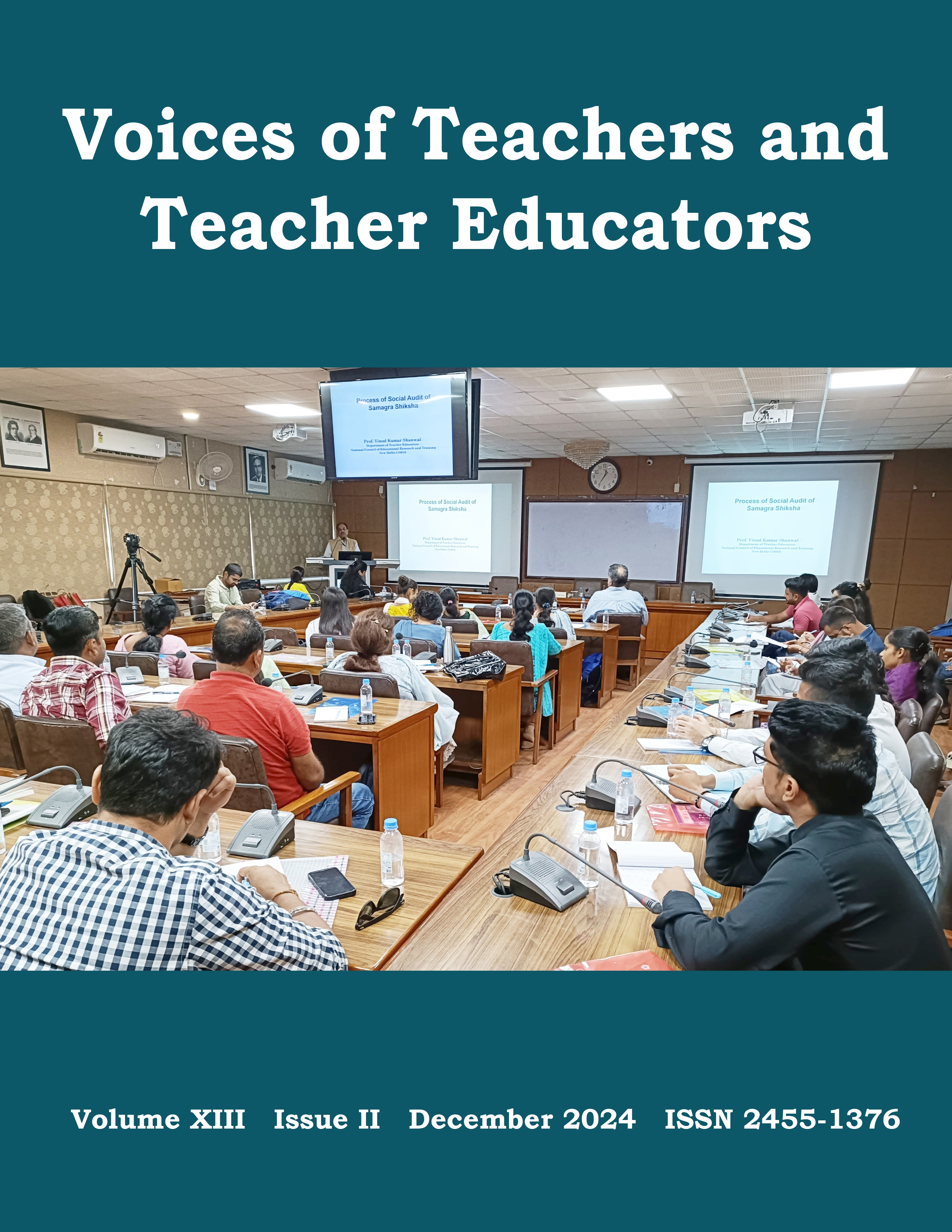Published 2024-12-31
Keywords
- Samagra Shiksha,
- National Education Policy 2020,
- Social Audit,
- Master Trainers
How to Cite
Abstract
The Samagra Shiksha scheme, launched by the Government of India in 2018 and later modified in line with the National Education Policy 2020 (NEP 2020), is an ambitious, integrated initiative covering the country’s school education from pre-primary to Grade 12. To ensure its effective implementation and monitoring, the Government of India introduced guidelines for the social audit of Samagra Shiksha on 25 August 2022. The National Council of Educational Research and Training (NCERT) was entrusted with the task of capacity building for master trainers across States and Union Territories (UTs). Any initiative of this scale required signing a memorandum of understanding (MoU) with a third party, such as a social audit unit or an institute. Once the MoU was signed and the States and UTs informed NCERT, the training programme was conducted on the basis of modules developed and coordinated by the Department of Teacher Education, which were approved by the Ministry of Education (MoE), on the date and venue specified by the States and UTs. This paper presents narratives based on field experiences from training programmes conducted in 11 States and UTs. These narratives, supported by data and evidence, were analysed to draw meaningful inferences. The paper highlights key issues and challenges encountered in various States and UTs, including the signing of MoU, selection of master trainers, cultural sensitivity in training, resource management challenges, and difficulties in data collection and reporting. Additionally, it addresses important queries and concerns raised by the master trainers across various States and UTs. The paper also offers recommendations for addressing critical issues, such as finding a balance between standardisation and localisation, need of robust capacity building infrastructure and creation of self-sustainability models. Finally, it outlines the way forward, emphasising the need for individualised action plans by States and UTs to effectively address these challenges and ensure a transparent, democratic and equitable social audit process.

